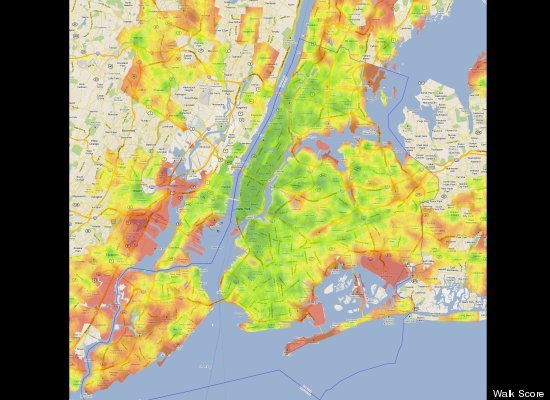Can you walk to your local grocery store, restaurants and other amenities? Or does each trip require a car ride?
The answer may have an impact on your health. According to one study, people of average height who live in walkable neighborhoods weigh eight pounds less (10 pounds for men, six pounds for women) than their car-bound counterparts. And now Walk Score, a Seattle-based company that evaluates the walkability and transportation of cities all across the country, has released its rankings of the most -- and least -- walkable cities in the U.S. Using new census data and advanced algorithms, Walk Score's latest ratings rank the 50 largest cities based on whether various amenities are within walking distance, assigning each a walkability score between 0 and 100 (from "car-dependent" to "walker's paradise," respectively).
Taking the crown this year was New York City, ousting the previous winner, San Francisco. According to Walk Score CTO Matt Lerner, the change is a result of the 2010 census data -- formerly industrialized neighborhoods in areas like Brooklyn, for instance, have become more livable over the past 10 years since the 2000 census.
Take a look at Walk Score's results -- their heat maps of each city reflect the walkability by neighborhood (red is bad, green is good). And, as Lerner points out, "Even un-walkable cities have some very walkable neighborhoods."
Don't live in one of these cities? You can search your Walk Score for any U.S. address (and see the full rankings of thousands of cities) on their website.

No comments:
Post a Comment